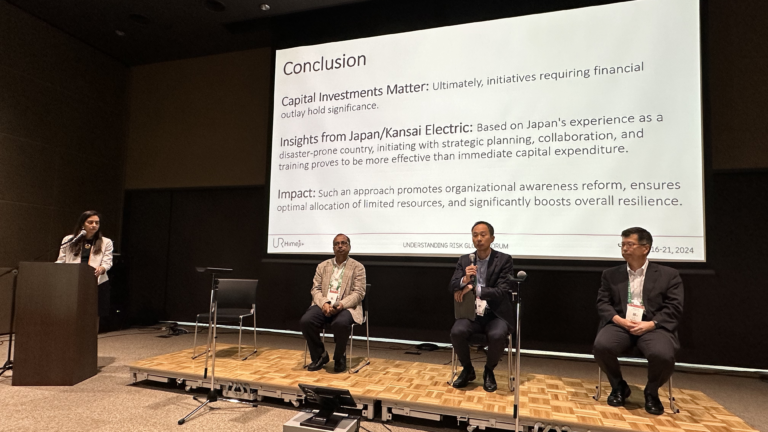
On the first day (18th June), Dr. Manzul K Hazarika presented “Assessing Current and Future Extreme Weather and Natural Hazard Risks to Inform Power Sector Resilience in Bangladesh,” and this World Bank-funded project is currently under implementation. This work was presented under a session titled “Safeguarding the Power System – Investing for Resilience in Bangladesh, Japan, and Ukraine”. The session provided multiple perspectives on incorporating hazard risks into investment planning for the power system.
In Bangladesh, downscaling of a climate model was carried out to assess the changing intensity and occurrence of climate hazard risks, including sea level rise, increased and variable monsoon winds and flash flooding, more intense heat waves, and lightning risks. Hazard risk profiles looking decades into the future have been prepared for electricity networks, generators, and fuel supply to strengthen asset and system-level resilience planning.
In Ukraine, the power system has faced extensive damage to generation and electricity networks amidst war, but lessons for other electricity utilities globally to build resilience to natural and human shocks were highlighted. An analysis of the use of demand response, dynamic line rating, and deployment of drone technologies, with the potential to strengthen the responsiveness, resilience, and flexibility of the power system, was presented.
Advanced practices in disaster risk management and responses in Japan by the Kansai Electric Power Company were presented. The presentation covered responses to the devastating Hanshin Awaji earthquake as well as other disasters such as floods, landslides, forest fires, and lightening.
